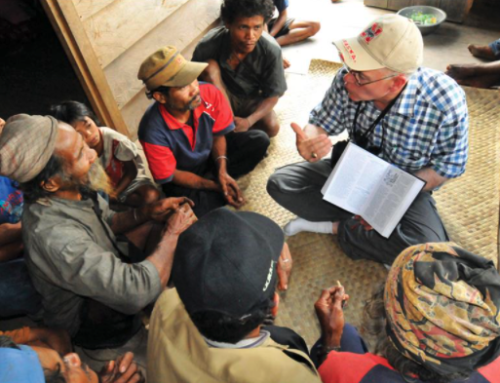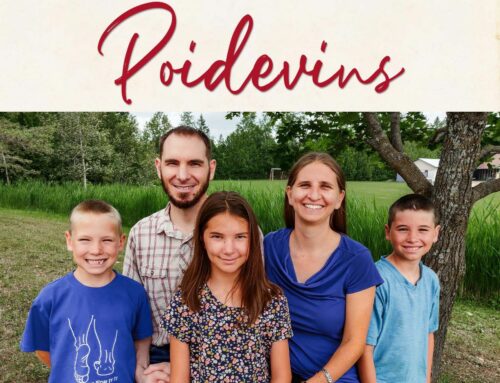A missionary grandmother shares the story of her beloved adopted grandson.
Teej was born on a banana leaf, deep in a Latin American jungle. His mother had been given out “on loan” by her much-feared witchdoctor husband to his nephew, so that he could spend his days for a while in getting to know his fifth wife, a teenager from another village.
When Teej’s mother realised she was pregnant and told her husband, he sternly ordered her to terminate the pregnancy. But instead, she made the courageous decision to defy his demands, scandalising the entire village, who were not bothered in the least by either multiple wives or the loaning of wives, but by her rebellion against her powerful witchdoctor husband. This, to them, was indeed reckless behaviour.
The mother subsequently became very ill. She was too sick to walk on her own and she had no milk for her baby and no way to take care of him. She was terrified to lose her marriage and thus her livelihood. Several days after his birth, in a moment of hopeless desperation, and under tremendous pressure from the village elders, she gave up her fight and threw her baby boy into the village refuse heap, where she left him to die.
But Teej did not die. In fact, the next morning, the determined, starving, red-faced, screaming newborn with black hair that stood straight up was discovered on the trash pile alive and without a scratch on him. The village elders determined then to end his life with a club, but a young man from the village took pity on the baby and ran to the home of missionaries to tell them the news in hopes that they could intervene.
“He was my ‘baby Moses’ drawn out of the jungle,” shares the missionary. “And he was desperately sick. Hepatitis, pneumonia and malaria—each one can be a killer on its own, but this tiny baby survived having all three at the same time.”
Eventually it was time for the missionary and her husband and children to return to their home country. They wondered if they would be stopped and questioned. Or even denied entrance. “My thoughts were racing and fear made my heart pound,” the missionary shares.
They had tried repeatedly to start an adoption process in Latin America and had been dismayed by what the officials of that country proposed. They assured the missionaries that the accepted procedure was to issue a document stating that the missionaries were his natural-born parents. And since there was no documentation in existence for his relatives in the jungle, the officials insisted, those relatives did not legally exist.
The missionaries were frustrated and concerned. But seeing that they were offending the government officials by their continued questions, the missionaries took the document with the official seal on it and headed with Teej for their home country.
“The plane circled the airport, and through the window I could see the sprawling city,” the missionary shares. “It took a long time to get through customs that day, with my long, complicated story, but finally they stamped my passport and Teej’s passport, also. They congratulated me on having such a sweet-tempered, happy child and said he was equally blessed that we had been there to take him into our family. I gathered my baby into my arms with my heart full to overflowing.”
That day that Teej was found in the pile of jungle rubbish happened more than 20 years ago, but Teej’s family knows that it was planned by a sovereign God long before that. The missionary family later transferred to a stateside ministry where they have lived ever since, and Teej has recently been in contact via Skype with a biological brother.
This story was shared by his grandmother, who is also a missionary in Latin America. She would love to have you pray for Teej and for his brother, Moto. Please pray, along with her, that God’s wise and loving plan for every detail of their lives will continue to unfold for their highest good and for His highest glory.






